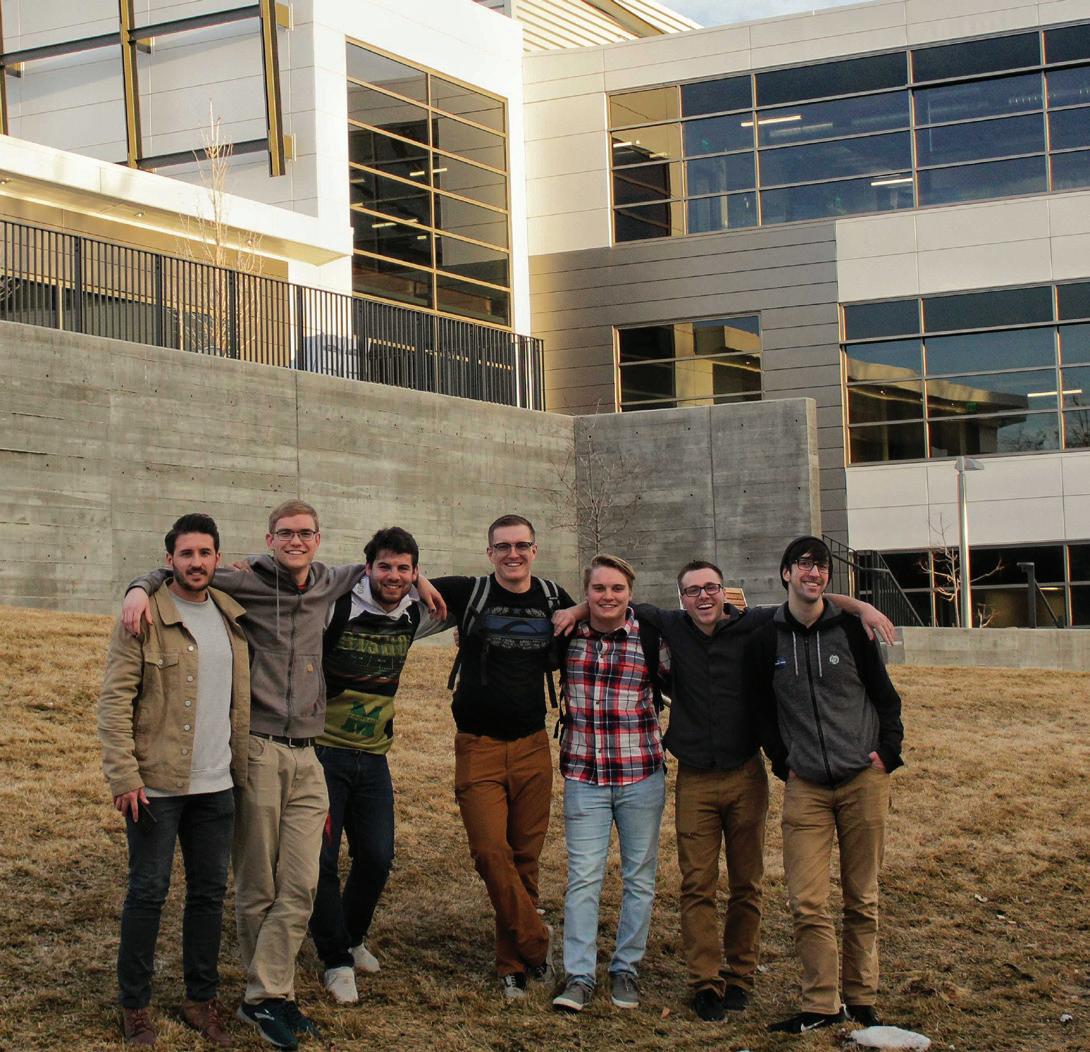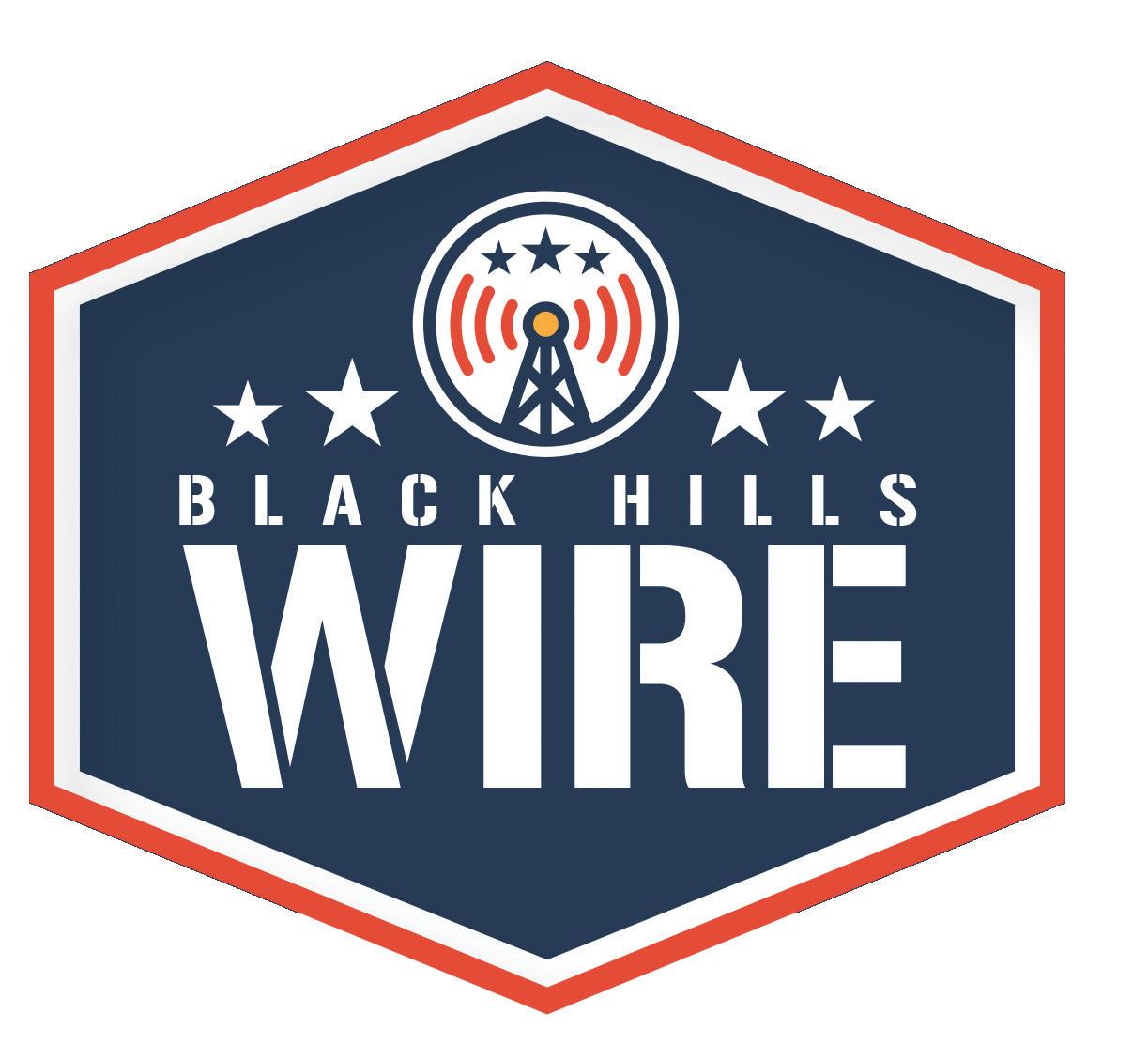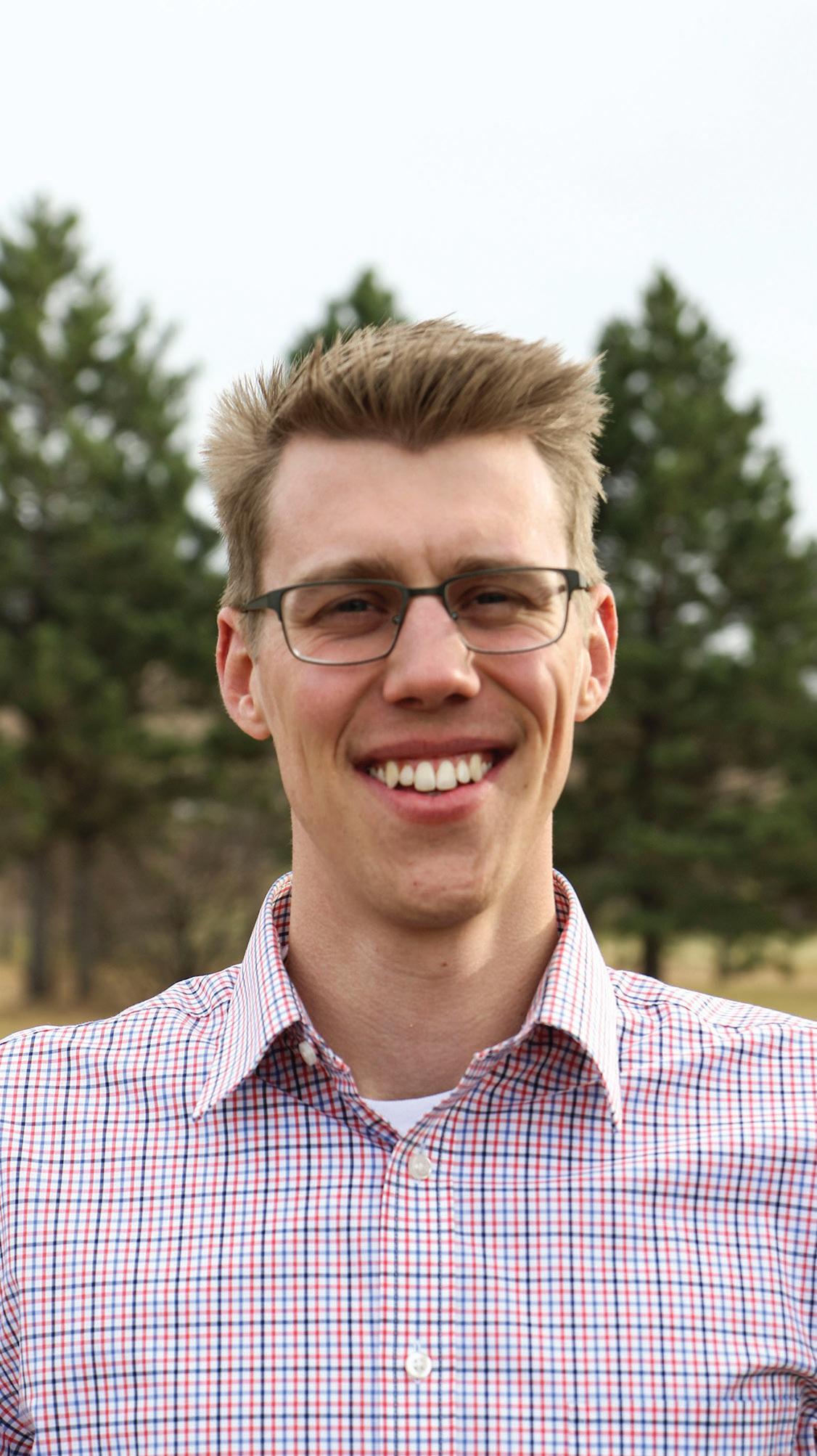
4 minute read
Benchmark Data Labs Rebrands
When Black Hills Knowledge Network was formed in 2009, the goal was simple: to empower individuals, organizations, and communities to make smart, informed decisions. Eight years later both the nonprofit organization's activities and name may have changed, but its mission remains the same.
Jared McEntaffer, Ph.D., President & CEO, is a South Dakota native who returned to the Rapid City area in 2017, leaving behind his teaching professorship at Penn State University in State College, Pennsylvania. The opportunity to join Black Hills Knowledge Network was too good to pass up. The company underwent a complete rebranding on April 14, changing their name to Benchmark Data Labs and unveiling a brand-new website. Originally conceived as a platform for providing people with access to information through local news sources and libraries, Jared says the organization found it necessary to adapt its business model in order to keep up with changing times. The digitization of local news proved challenging as newspapers and libraries lost funding and were forced to reduce staff. "We weren't the best people to try to fill that gap," Jared admits, "But we were the right people to try to push forward the idea of using data and information to drive decision-making. It's still the same mission and core values; we're just carrying it out in a different way."
The push for rebranding began to take shape once it became clear that Black Hills Knowledge Network's largest user groups were focused on data and statistics provided through the company's South Dakota Dashboard. "People were more excited for the stuff we were doing with data," Jared explains. "In rural South Dakota, it's tough to get good information. There aren't a lot of experts collecting and disseminating data, so it's harder to get information to base decisions on. Having the resource was a big deal, and a lot of people voiced how much they appreciated and used that in their work."
South Dakota Dashboard provides a wide variety of in-depth data and statistics concerning health, demographics, housing, population information, and more. With support from the Bush Foundation, Benchmark Data Labs collects data from federal, state, and local sources and designs data visuals to make the information accessible and understandable. It is broken down by counties and towns across the state, as well as by age, race, and gender. This information is invaluable for a diverse group of decision-makers including bankers, housing developers, and politicians. In addition, Benchmark Data Labs does consulting work with governments, businesses, nonprofits, and individuals to help them make smart decisions. "We aren't just putting the numbers out there," he says, "but providing some context, as well." Jared finds this emphasis on data to be a more sustainable long-term business strategy; Benchmark is able to use the funds earned from consulting to help support their nonprofit work, putting it into easily digestible forms such as charts and graphs and making it available to everyone.
Jared works closely with Callie Schleusner, Director of Monitoring & Evaluation. While Benchmark Data Labs isn't the typical incubator client, having a space at Ascent Innovation has been mutually beneficial. In fact, the whole concept behind working there was to collaborate with Ascent. "Being in Ascent gives us access to expertise," Jared explains. "People like Mitch can connect us with resources to help us understand how we can grow our organization and set it up for the future." In return, Benchmark helps support Ascent's economic development work by supplying them with crucial job market data. The other businesses in the incubator benefit, as well. "We offer free services to other businesses in Ascent," Jared says, citing one-off data requests and assistance finding information. "That's part of how we give back to the whole ecosystem. Being in the incubator helps us grow and become a bigger, stronger company, and we try to help other companies through our data work."
As for the future of Rapid City, Jared admits to being "tremendously positive." Growing up in South Dakota and spending frequent time with his grandparents, who lived in Rapid City his whole life, he has witnessed firsthand many changes since returning in 2017. "A lot of interesting developments happened in sequence that made me feel tremendously bullish that Rapid City is ready to launch itself for a new stage in its development," he says, pointing to Main Street Square, downtown revitalization, and the civic center expansion as key examples. The latter was especially telling. "The civic center expansion made sense from a numbers' perspective," he says, "and also the perspective of a community willing to go out on a limb and take some chances that could help launch it. I think it was a sign; it gave me a lot of confidence that the community was willing to make some moves." Other important initiatives, such as the expansion of the Ascent network and its emphasis on connecting the School of Mines with the community, and the impending arrival of the B21, are a clear signal that we're headed in the right direction.
"The idea that we're looking at expanding beyond the service economy, beyond the hospitality economy," concludes Jared, "not leaving those things behind, but adding new opportunities, sort of rounds out that portfolio."

Jared McEntaffer









